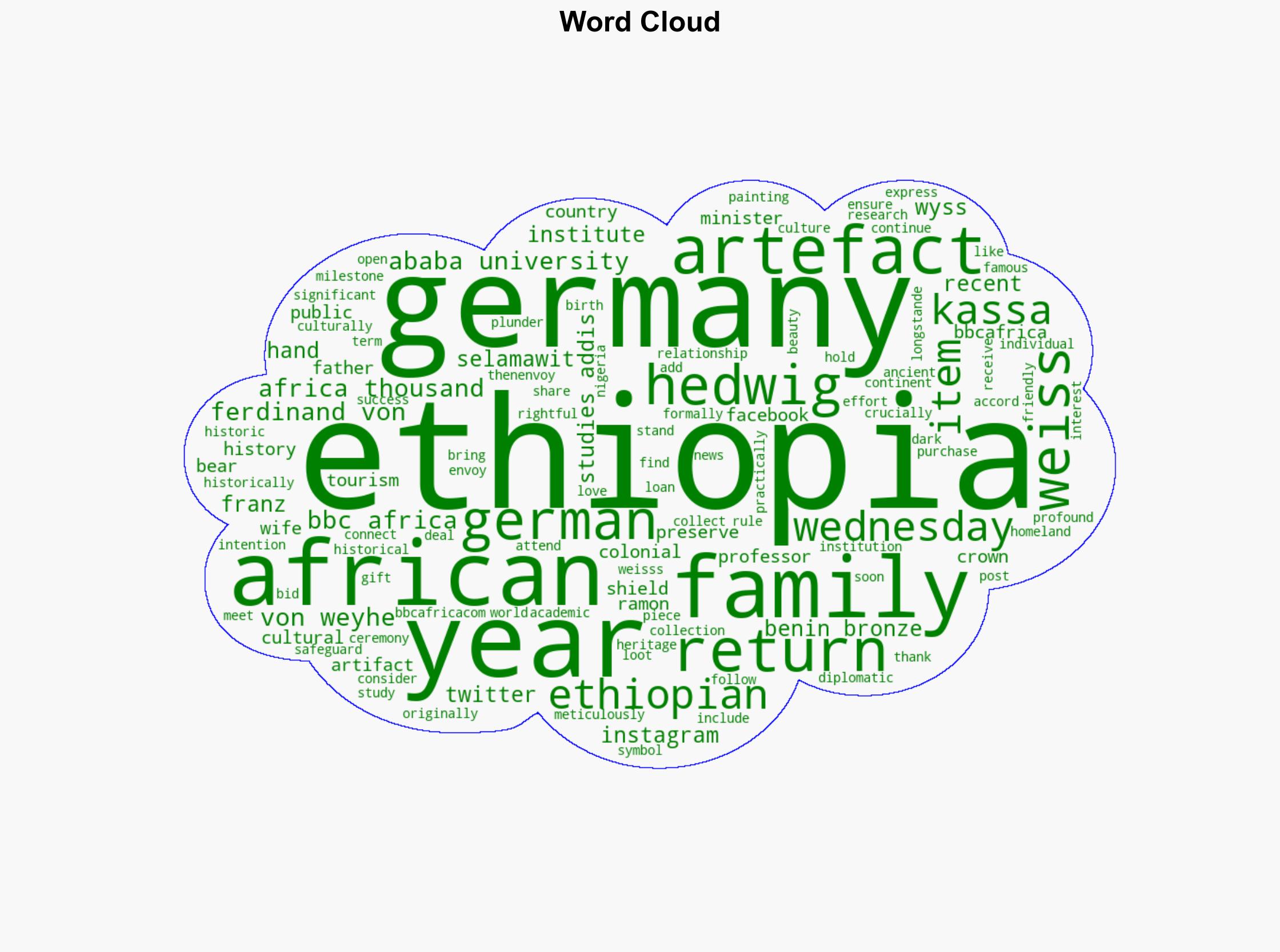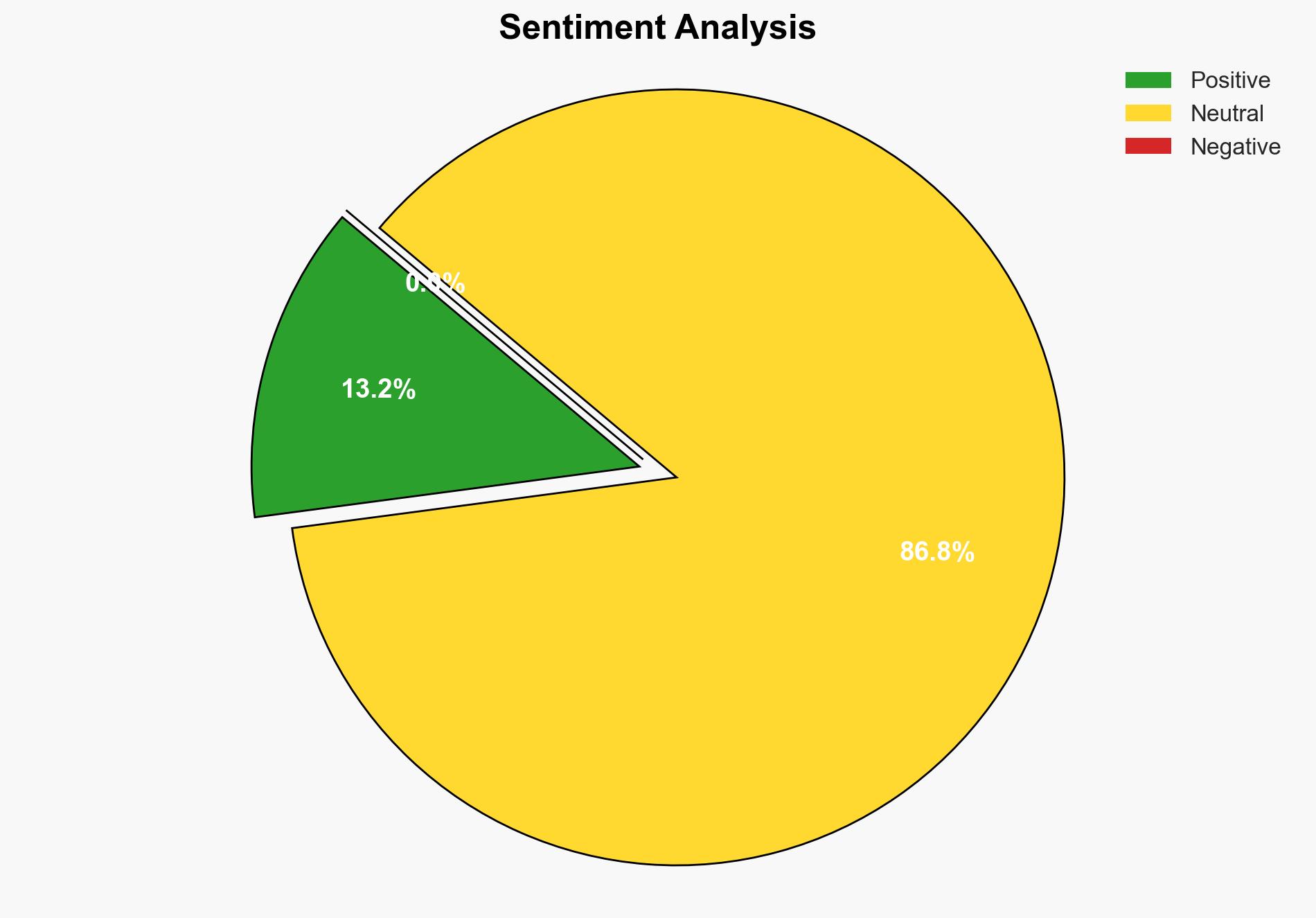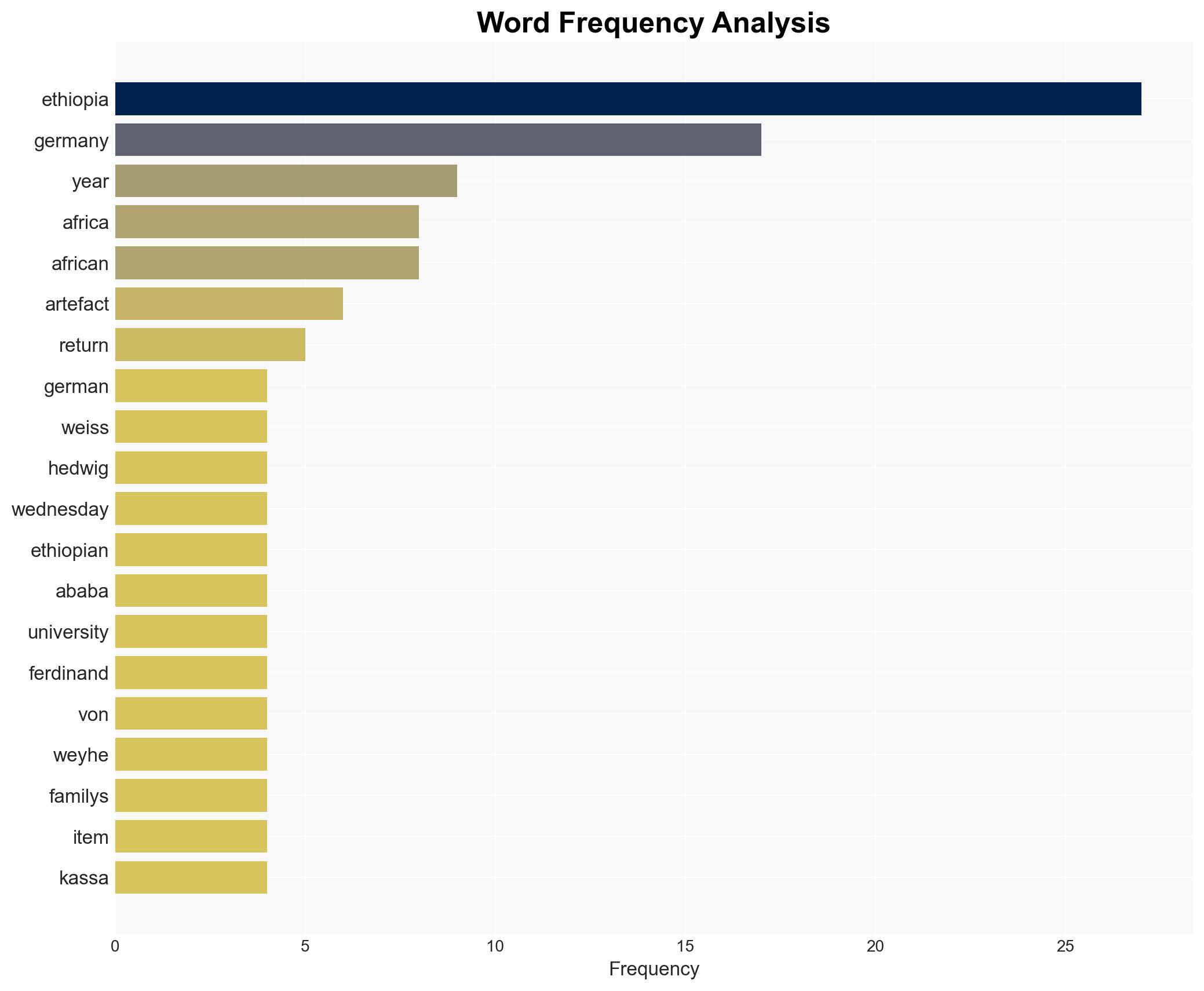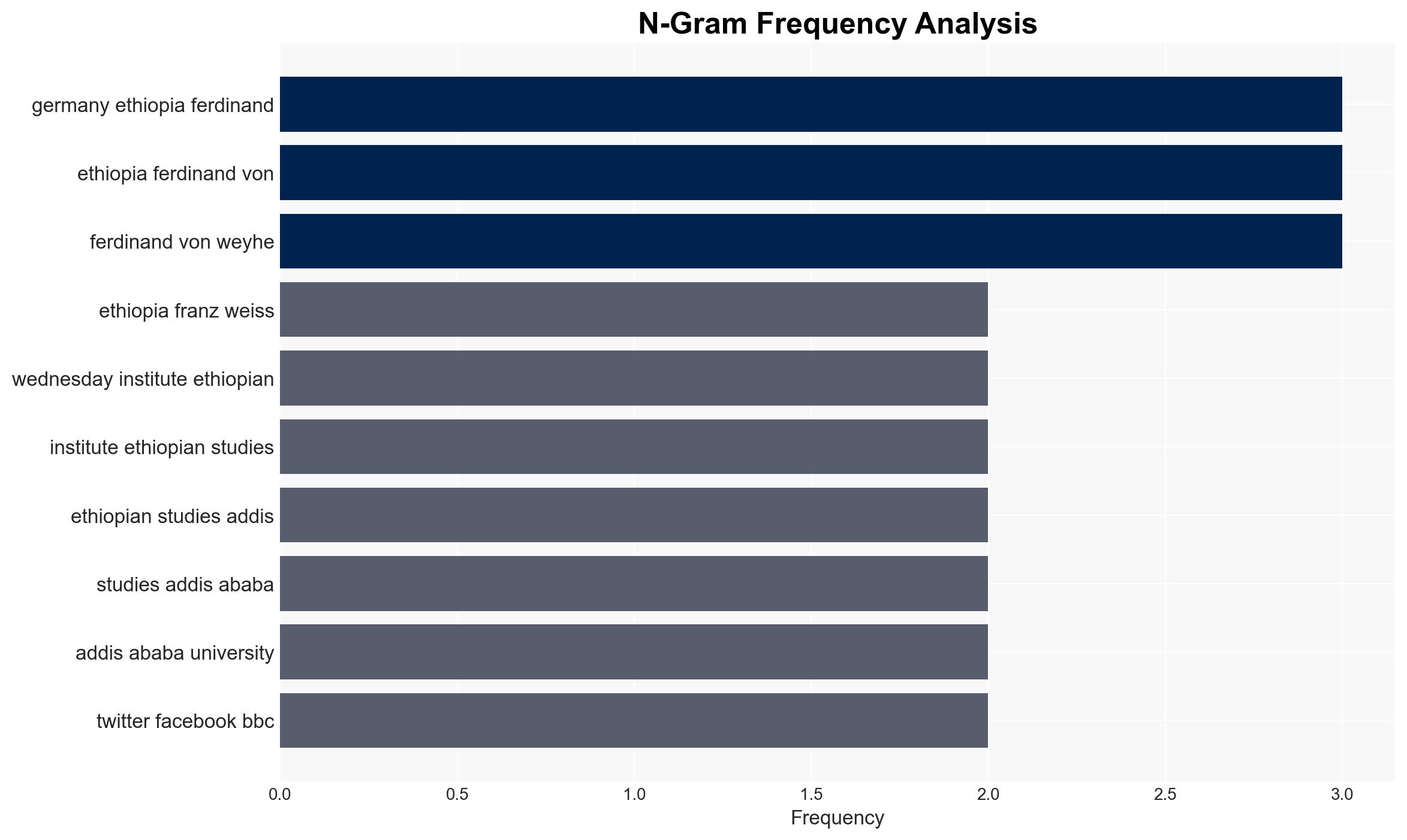Ethiopia receives historic artefacts held in Germany for 100 years – BBC News
Published on: 2025-11-20
AI-powered OSINT brief from verified open sources. Automated NLP signal extraction with human verification. See our Methodology and Why WorldWideWatchers.
Intelligence Report:
1. BLUF (Bottom Line Up Front)
The return of historic artefacts from Germany to Ethiopia is a significant diplomatic gesture that may strengthen bilateral relations and set a precedent for future restitution of cultural heritage. The most supported hypothesis is that this action is part of a broader trend of addressing colonial legacies, with a moderate confidence level. Recommended actions include monitoring similar restitution efforts globally and leveraging this event to enhance Ethiopia’s cultural diplomacy.
2. Competing Hypotheses
Hypothesis 1: The return of artefacts is primarily a diplomatic gesture aimed at strengthening Ethiopia-Germany relations and addressing historical grievances.
Hypothesis 2: The return is part of a broader international trend of repatriating artefacts to address colonial legacies and improve cultural diplomacy.
Hypothesis 1 is supported by the involvement of diplomatic figures and the ceremonial nature of the return, suggesting a focus on bilateral relations. Hypothesis 2 is supported by the global context of similar restitutions, such as the Benin Bronzes. The evidence moderately favors Hypothesis 2 due to the broader international trend.
3. Key Assumptions and Red Flags
Assumptions:
– The artefacts were legally acquired and are being returned without legal contention.
– The return will positively impact Ethiopia-Germany relations.
Red Flags:
– Potential disputes over the legality of artefact acquisition.
– Possible domestic criticism in Germany regarding the return.
4. Implications and Strategic Risks
The return of artefacts could encourage other countries to pursue similar restitutions, potentially leading to diplomatic tensions if not managed carefully. There is a risk of political backlash in countries holding artefacts, which could impact international relations. Economically, the return of artefacts could boost tourism in Ethiopia, but also create expectations for similar actions elsewhere.
5. Recommendations and Outlook
- Monitor global trends in artefact restitution to anticipate diplomatic shifts.
- Encourage Ethiopia to use this event to strengthen cultural diplomacy and tourism.
- Best Case: Successful restitution leads to strengthened Ethiopia-Germany relations and increased global cultural cooperation.
- Worst Case: Legal disputes arise, straining diplomatic relations and setting a contentious precedent.
- Most Likely: Continued trend of artefact restitution with moderate diplomatic benefits and increased cultural awareness.
6. Key Individuals and Entities
Franz Weiss, Hedwig Weiss, Ferdinand von Weyhe, Ramon Wyss, Selamawit Kassa
7. Thematic Tags
Regional Focus, Africa, Europe, Cultural Heritage, Diplomacy, Colonial Legacy
Structured Analytic Techniques Applied
- Causal Layered Analysis (CLA): Analyze events across surface happenings, systems, worldviews, and myths.
- Cross-Impact Simulation: Model ripple effects across neighboring states, conflicts, or economic dependencies.
- Scenario Generation: Explore divergent futures under varying assumptions to identify plausible paths.
Explore more:
Regional Focus Briefs ·
Daily Summary ·
Support us





